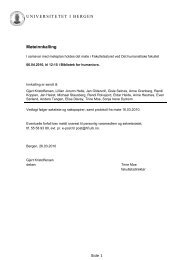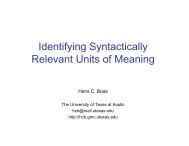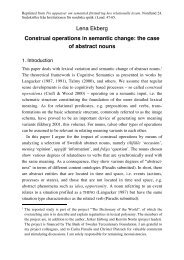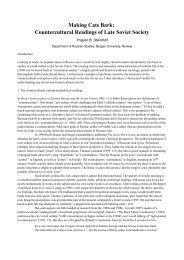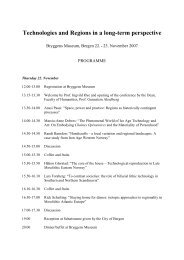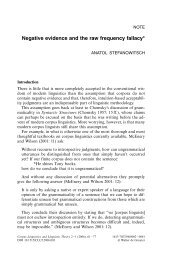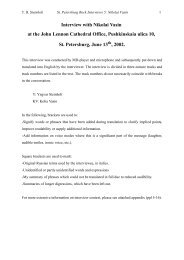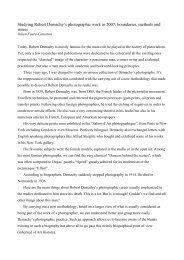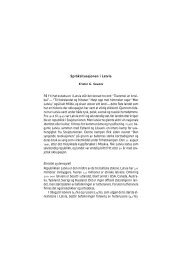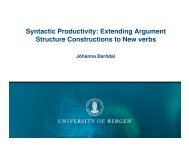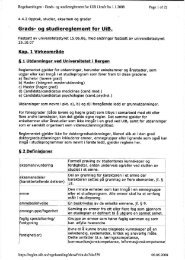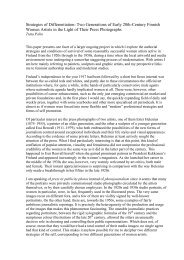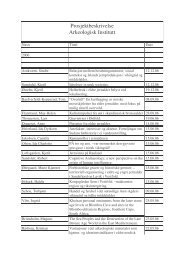THE BOOK OF POEMS IN TWENTIETH-CENTURY ... - TopReferat
THE BOOK OF POEMS IN TWENTIETH-CENTURY ... - TopReferat
THE BOOK OF POEMS IN TWENTIETH-CENTURY ... - TopReferat
You also want an ePaper? Increase the reach of your titles
YUMPU automatically turns print PDFs into web optimized ePapers that Google loves.
Gippius employs two "sacred" texts in "Лазарь": the biblical story of Lazarus<br />
and Pushkin's "Медный всадник." The poem is framed by explicit references to the<br />
biblical story, beginning with the title "Лазарь" and ending with the words of Martha and<br />
Jesus. When Jesus asks Martha to take the stone away from her brother Lazarus's tomb,<br />
Martha resists, saying "Sir, by now there will be a stench; he has been there four days"<br />
(John 11:39; cf. Gippius's lines: Кто отвалит камень от гроба?/Господи, Господи:<br />
уже смердит). Gippius's description of Lazarus's resurrection and release (Близок Ктото,<br />
Он позовет./И выйдет обвязанный пеленами:/«Развяжите его. Пусть идет»)<br />
comes directly from John 11:43-44: Then [Jesus] raised his voice in a great cry:<br />
'Lazarus, come out.' The dead man came out his hands and feet bound with linen<br />
bandages, his face wrapped in a cloth. Jesus said, 'Loose him: let him go.'<br />
Pushkin's poema is invoked in the fourth stanza of "Лазарь" with the description<br />
of the statue of the Bronze Horseman: the cast-iron Peter sits on his horse, trampling on a<br />
snake. Just as the inhabitants of the city come out to marvel at the furious waves in<br />
Pushkin's "Медный всадник" (Поутру над ее брегами/Теснился кучами<br />
народ,/Любуясь брызгами, горами/И пеной разъяренных вод [In the morning along<br />
her shores/The people crowded around in clusters,/Admiring the splashes, mountains/And<br />
foam of the furious waters]), Gippius commands the silent Peter to "admire" the bloody<br />
destruction surrounding him in his devastated city: Что ж, любуйся на ямы волчьи,/на<br />
рыжее кружево на снегу. Like the hero of Pushkin's poema, she challenges Peter, but<br />
now, in place of Evgenii's threatening, "miracle-working builder" (Добро, строитель<br />
чудотворный!), she encounters an "empty-eyed" Builder, (Ты, Строитель, сам<br />
136



